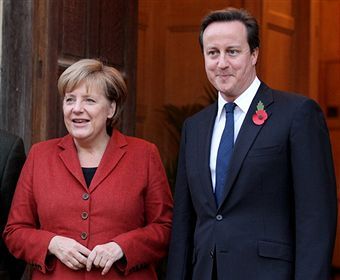 David Cameron is now in Seoul for the first G-20 summit hosted by a non–G-7 member
state. It will be the Prime Minister’s second G-20. But things have changed dramatically since he came to power and had to jet to Toronto for his multilateral baptism.
David Cameron is now in Seoul for the first G-20 summit hosted by a non–G-7 member
state. It will be the Prime Minister’s second G-20. But things have changed dramatically since he came to power and had to jet to Toronto for his multilateral baptism.
Then the Prime Minister’s arguments for austerity measures were theoretical – and a minority position. Now, they are real and have become the majority view. “Camerkelism”, the idea that short-term fiscal consolidation will induce sufficient private-sector activity to more than fully offset the fiscal drag seems to be in the ascendant.
Yet the forced smiles at the traditional G-20 class photo will belie a number of continuing problems. The biggest issue will be about the Chinese exchange rate. External imbalances, which had been shrinking due to the recession, are once again growing and threaten to undermine efforts at “balancing” the world economy.
At a recent meeting of G-20 finance ministers, it was agreed to move toward “market determined exchange rate systems” and refrain from “competitive devaluation of currencies”. But they were unable to agree on any sort of numerical guidelines to deal with imbalances. This may have staved-off fears of a Sino-American currency war. But exactly what constitutes “market intrusive” monetary policy?
The second issue of contention will be financial regulation. The G-20 effectively subcontracted the development of improved international financial regulations to the multilateral Basel Committee. But the proposed solution is seen an insufficient by many. It remains to be seen how forcefully the US will push for further strengthening of the regulations, a move opposed by some EU governments and Japan.
Third, there is IMF reform – both the fund’s management and its resources. Here too differences remain.
At Korean insistence, other issues will be on the agenda. The first is the so-called “Global Financial Safety Net.” The Korean government wants an expanded formal system of bilateral, regional, and global financial agreements to help countries in crisis. In Europe – and especially in Britain – this is far from apolitical. On trade, the Korean government aims to kick-start the Doha Round trade negotiations. But it is not clear what will be presented to break the log-jam.
Finally, development and climate change are major items on the agenda. But with the December 2010 UN Cancún ministerial meant to pick up the pieces after COP-15 in Copenhagen, there will be little room for the G-20 to make a real difference. Development, too, will see little serious change. The fact is that the richest countries, but for a few exceptions like Britain, has reneged on their aid commitments.
Former Turkish finance minister Kemal Dervish says the “the big problems of international economic policy coordination will not be solved overnight. Patience and persistence are of the essence.” Looking at the G-20 agenda, and the problems that are likely to emerge in the next two days, it seems David Cameron will need both qualities in spades.






Comments